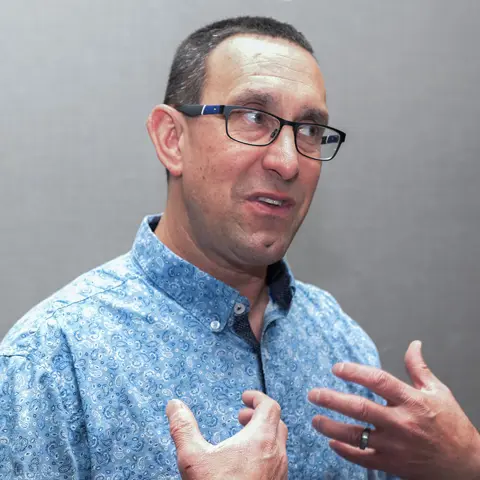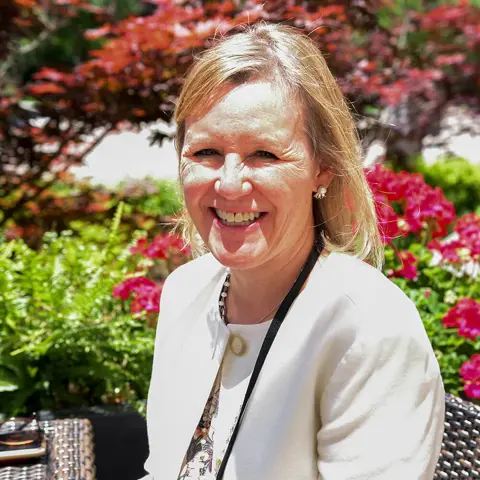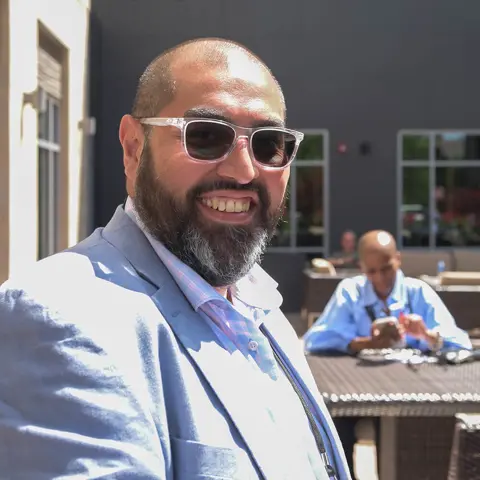
Graeme Nadasy
Communications Officer & Editor, UMC

The Boston WHODrug team and guest speakers (from left): Damon Fahimi, Linda Roggeveen and Krista Mullen of Biogen, Jessica Avasol, John Juter, Rhonda Facile of CDISC, and Marilina Castellano
Community is not a term you will find in a medical coding dictionary or a feeling you can easily replicate online. Come to the next WHODrug User Group meeting and see for yourself.
If you’re looking for the definitionof a WHODrug User Group meeting, “surprisingly non-academic” would be it – despite this one’s setting in Cambridge, Massachusetts. The day started with hugs rather than handshakes as members of the East Coast’s medical coding fraternity, software vendors and regulators came together to hear more about the latest WHODrug developments, including updates on regulatory expectations, and share ideas, experiences, and coding best practices.
North America is an important fixture on an annual world tour that includes Asia, Europe and now Latin America. This year, for the first time ever, WHODrug is travelling south of the border to Mexico as use of the dictionary becomes more widespread throughout the region, with both industry and regulators increasingly recognising the value of standardising data for monitoring drug safety in clinical trials and post-marketing surveillance.

“You really don’t want to miss one of these meetings, they are a great opportunity to network and develop your skills by learning from others.”
Among the more familiar faces in Cambridge was Hank Dennis, Senior Manager of Clinical Data Coding at Seagen, an oncology firm based in Bothell, Washington. A WHODrug veteran in more than one sense, he has been using the dictionary for over 15 years and attended his first meeting in 2011. Since then, he has been involved in the planning committee and served as a regular guest presenter and participant on expert panels.
“You really don’t want to miss one of these meetings,” he says. “They are a great opportunity to network and develop your skills by learning from others.”
Throughout the meeting, users participated in interactive polls, quizzes, and surveys that sought both to test their knowledge of WHODrug and find out what they were missing. Their responses clearly show they want more training and information online for upskilling and keeping pace with regulatory changes. This is in line with a more general shift towards a mix of face-to-face and e-learning.
“These meetings are so collaborative. I get to connect with people from other organisations who face similar challenges and opportunities for growth. I always come away with updates about what’s coming in future releases of the dictionary and learn something new about the tools, and better, more efficient ways of working. We’re all being asked each day to do more with less. But the goal is always to get safer drugs to market for patients faster. The best part of these meetings for me is that I get to reflect on our work and take that back to my team to see if we’re doing our best or if there are other ways that we could improve our processes.”

Even before COVID-19, WHODrug users had been accustomed to meeting online for regular monthly webinars giving them the latest news and updates. Two new webinar series – “WHODrug Essentials” and “WHODrug Beyond Basics” – are now in the works for 2024 such is their popularity. WHODrug User Group webcasts then became a fixture during the pandemic when in-person meetings were forced to move online. One silver lining being that more people could join.
The first-ever virtual WHODrug User Group meeting was held on 2 April 2020, with Uppsala Monitoring Centre’s Outreach Manager Damon Fahimi and WHODrug Product Manager Marilina Castellano hosting a live webcast from a deserted UMC office instead of Amsterdam. Not only was there a record turnout, many of the 299 users who tuned in had never attended a meeting before – and they did so from all over the world. Including one enthusiast from the US, despite the webcast starting at 4am local time.
In the same vein, a WHODrug & MedDRA Global webcast was set up during the pandemic to connect users across borders and continents. Meetings took place in 2021 and 2022, and one is planned for the end of this year on 14 December. WHODrug and MedDRA MSSO (MedDRA Maintenance and Support Services Organization) often work with each other, and it is not unusual for user group meetings to be held together, as was the case in Cambridge, since the two most widely used medical dictionaries for coding medicinal products (WHODrug) and adverse events (MedDRA) tend to go hand in hand.

“I try to get as many of my team to attend these meetings as I can. You get client interaction, and you learn a lot, too. The coding challenges are always good because as a vendor you get insight into how your users think and use your browser. This helps us to improve the user experience by making more relevant information easier to find. I need to understand it so that our users can.”
But while virtual events are here to stay, they are still no substitute for live human interaction, as our warm reception in Cambridge showed. In addition to this year’s in-person meetings in America, Germany, India, Japan, Korea, Mexico, and provisionally China, there were supplementary webinars on how to use UMC’s automated coding engine WHODrug Koda for drug name coding and ATC selection and an introduction to the ISO standards for the identification of medicinal products (IDMP), among other topics. But just one user group webcast due to COVID-related uncertainty over the visit to China.
“Webcasts helped us make the best of a bad situation, but they are not a replacement for in-person meetings,” Fahimi says. “Webinars are a good way for our users to stay informed and remain active and engaged, especially given geographical limitations or other considerations, such as budgetary restrictions or time constraints. But meeting in person is simply unbeatable for connecting, sharing experiences, and discussing the future of WHODrug Global and drug coding with each other as well as with UMC staff. We need to accommodate for both types of events.”
Seagen’s Hank Dennis agrees. “I know budgets are getting tighter, but if you can get away from work it’s worth it. I’ve found that the benefits – the value from networking, learning skills and solutions to various challenges – far outweigh the cost of attending these meetings.”
Sign up for the WHODrug Newsletter for information on upcoming webinars and User Group meetings here.
“I love the interactive sessions, especially when we’re discussing the coding of tough terms. Brainstorming with your fellow coders is a great way to get new tips and tricks. You pick up all sorts of things that influence your general thought process on coding.”

Read more:
Since its introduction 20 years ago, UMC’s adverse event reporting system has become the world’s most widely used safety surveillance toolkit for medicines and vaccines.
25 November 2024
WHO and UMC introduce new VigiBase access conditions, enhancing data sharing clarity and stakeholder confidence in global pharmacovigilance.
20 March 2025
Since 2021 PAHO has assisted 12 countries in importing more than 270,000 historic and new cases to the global database.
27 March 2025